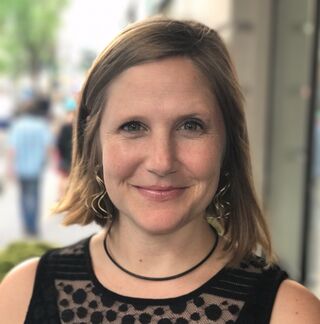Coronavirus Disease 2019
The Complex Reasons Why Some Refuse to Wear a Mask
An anthropologist makes sense of small town reactions to COVID-19.
Posted February 17, 2021 Reviewed by Gary Drevitch
by Alexandra Brewis and Amber Wutich
Mask-wearing is a primary means to prevent community transmission of COVID-19. Yet in the US, and many other places, there are pockets of intense resistance to mask use. A new study published this week by a team of medical experts and social researchers is revealing the cultural complexities of why mask-wearing is embraced by some and rejected by others.
Georgtown University medical anthropologist Emily Mendenhall had previously done long-term research on community responses to illness in South Africa, India, and Chicago. Beginning in June 2020, she returned to her hometown in central Iowa to understand better how residents were reacting to the threat of coronavirus. Her former school classmates were among those who helped her recruit people into the study.
As a small Midwestern community dependent on summer tourists visiting the Iowa Great Lakes, in a state without any formal stay-home orders, Arnolds Park was pumping those summer 2020 weekends. Most townspeople and tourists went about mask-free. Some who wore masks found themselves harassed as “maskholes,” told coronavirus was fiction, or told that there was nothing to worry about as everyone had caught it already anyway.

For medical anthropologists like Mendenhall who study what people do in a pandemic, such views around mask-wearing aren’t immediately interpreted in terms of being good or bad, right or wrong, or even healthy or not. The focus of such social research is understanding the ways people weigh what are often complicated decisions in the contexts of their own sense of self and how they relate to those around them. People take into account, for one, the degree to which they expect others will judge them negatively based on what they do. And wanting to avoid that judgment is a very normal, human way to make decisions about how to behave – even in a pandemic.
Mendenhall’s many interviews with residents revealed the contradictory set of ideas that people were balancing as they made their masking decisions and reacted to others around them. Even in a town where masking was rare, a subset of residents was very concerned and accordingly masked and stayed home when they could. Many were health-care workers, teachers, or others employed in service occupations with particularly high risks of infection. But almost everyone in the town was worried about the financial threat of coronavirus, given their dependence on the summer visitors. This steered them away from wearing masks themselves, and discouraged them from expecting clients to do so either. Bosses even pressured employees to go without. Yet, at the same time, many people recognized the possible dangers involved.
Those who most adamantly resisted the idea of mask use expressed a complicated but recognizable mix of political and religious beliefs that aligned with the idea that coronavirus was a hoax. As one couple who had already been infected put it: “We know where we're going when we die. We put our trust in God. There's no fear. I mean, as far as our kids, I … don't necessarily want them to get it, but I want them to build the immune system towards it.” There were also fears expressed that mask-wearing was harmful because it caused poisoning from carbon dioxide build-up. (It doesn’t.) Some had adopted the idea, promoted through social media, that natural immunity gained from non-masking was protective against a worse form of the illness. (It doesn’t.) Fearing the virus – and masking — was thus understood as counter-productive.
The study report, published in Social Science and Medicine, highlights that such views that minimize or ignore the risks of infection in a pandemic are as genuinely held as any others. By denying that coronavirus was dangerous, or even real, people were adhering to and expressing their most basic, core political and spiritual values. They were making sense of a difficult, complicated event by amplifying the ideas they already have about how the world is and should be. It reminds us that policies – such as those around mask-wearing – are never going to be uniformly reacted to and acted on when people are operating under different views of what is important and why, even in the small Iowa town that became a summertime COVID-19 “hot spot.”
References
Koon, A., Mendenhall, E., Eich, L., Adams, A., & Borus, Z. A. (2021). A Spectrum of (Dis) Belief: Coronavirus Frames in a Rural Midwestern Town in the United States. Social Science & Medicine, 113743.


